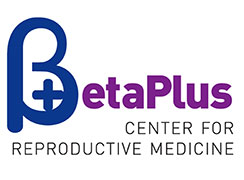A place where a sperm and an egg meet is the fallopian tube. If it is damaged the conception will either fail or will occur, but the fertilized egg will not reach uterus thus resulting in ectopic pregnancy. Women who are likely to have their fallopian tubes damaged are those who have had:
- pelvic inflammatory diseases – inflammations of the uterus or Fallopian tubes or undiagnosed chlamydial infection
- surgical procedures near Fallopian tubes
- ectopic pregnancy (the risk of recurring ectopic pregnancy in a patient is 10%)
- endometriosis
- abortion
- intrauterine devices
Ectopic pregnancy is a type of pregnancy where embryo implants outside the uterus, mostly within a Fallopian tube instead of uterine cavity. It occurs in 1% of all pregnancies and the embryo cannot survive. It is a very dangerous condition as it can lead to life-threatening hemorrhage if not timely recognized. Ectopic pregnancy can be detected by positive pregnancy tests, while at the same time ultrasound fails to discover the embryo or there is an irregular pregnancy hormone (beta-hCG) elevation in blood.
Symptoms of ectopic pregnancy are pain (not always present at early stages of pregnancy), bleeding (not always present at early stages of pregnancy) and pregnancy symptoms. In cases of rupture in ectopic pregnancy there is sharp abdominal pain and fainting as a result of sudden blood loss.
If beta-hCG levels decrease in two testings within two days, we can only wait for pregnancy to terminate, while monitoring the patient. Early ectopic pregnancies can be treated by injecting methotraxate, while late pregnancies, or those with elevated levels of beta-hCG, are treated surgically, usually laparoscopically:
- salpingostomy – removal of an embryo, but not a fallopian tube
- salpingectomy – removal of a fallopian tube with an embryo
If infertility is diagnosed, while results of couple’s examinations are satisfactory and there are no other obstacles to pregnancy, a woman is recommended an examination of Fallopian tube patency, radiologically or with the ultrasound. Patent tubes are preconditions for insemination. If the examination shows obstruction of one or both tubes, the couple is recommended an IVF.




